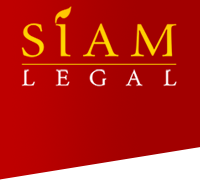Withdrawal of Shareholder Meeting Resolutions
A basis for withdrawing a resolution passed by a shareholder meeting of a Thai limited company is that the resolution was passed through bad-faith. Section 5 of the Civil and Commercial Code provides that “Every person must, in the exercise of his rights and in the performance of his obligations, act in good faith.” Furthermore, Section 421 of the Code declares that: “The exercise of a right which can only have the purpose of causing injury to another person is unlawful.” Taken together, these legal provisions mean that a company resolution passed by a shareholder meeting, if deemed unlawful or passed through bad intentions of the shareholders, can be declared void by a Court. In Thai Supreme Court Decision No. 186 to 188/2477, the Court laid out the principle that a shareholder meeting resolution could be deemed invalid and withdrawn on the basis that the shareholders acted in bad-faith:
- “…the Defendant appeals that the resolution passed at the meeting entered on 21 August 1932 was proper because the meeting proceeded in accordance with the law…[The facts are that] Defendant transferred his shares to the other defendant by mutual consent [or secret agreement]. The meeting was held unjustly in order to restrict the authority of the previous board of directors. The Supreme Court is of the view that the resolution passed at the meeting was unlawful because, according to the meaning of the Civil and Commercial Code sections 5 and 421, a person must exercise his rights in good-faith and without causing damage to others. Entering into a partnership or a limited company requires honesty and good-faith most importantly…”
- It is worth noting that the requirement of good-faith in the exercise of legal rights explains to a certain extent as to why contracts drafted under Thai law tend to be shorter than those drafted in some other legal jurisdictions. Since there is a presumption and requirement that people exercise their legal rights in good-faith, there is less of a necessity when drafting contracts under Thai law to contain extensive provisions that are required to ensure that parties to the contract do not exercise their rights unfairly to the disadvantage of the other party.
Thai company law is complex. Foreigners who are involved in the management of a Thai limited company or who are shareholders in such a company are advised to consult with competent Thailand lawyers in order to understand the rights and duties under Thai law.
Category: Civil and Commercial Law, Company Law
About the Author (Author Profile)
Siam Legal is an international law firm with experienced lawyers, attorneys, and solicitors both in Thailand law and international law. This Thailand law firm offers comprehensive legal services in Thailand to both local and foreign clients for Litigation such as civil & criminal cases, labor disputes, commercial cases, divorce, adoption, extradition, fraud, and drug cases. Other legal expertise of the law firm varied in cases involving corporate law such as company registration & Thailand BOI, family law, property law, and private investigation.











